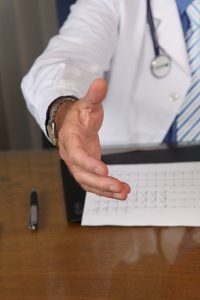When you are ranking programs for the Match, it is best to go with your heart. That is, try to join a specialty that you are passionate about. It will help you to be successful and lessen your chances of burning out. However, you may be passionate about more than one program. This is understandable, and that it why it is helpful to pay attention to statistics and what other non-U.S. international medical graduates (non-U.S. IMGs) have done to get Matched.
Rank Order List
Ranking programs for the Match should be based on passion, but it should also be smart. For example, the NRMP’s 2018 Match report indicates that longer rank order lists tend to produce a larger percentage of Matches. For non-U.S. IMGs, it may be difficult to find a long list of programs that are likely to accept you for one reason or another. You may feel like some programs are a long shot or that it is a waste of time to rank them. Get this thought out of your head. If there is a chance, and you wish to enter the program, get it on your list. Once you have to start paying extra to add to your rank order list (20 unique programs before extra fees on primary rank order list), you might be more selective. But if your list is short, add those long shots!
USMLE Scores
There are many factors that determine whether or not any medical graduate is considered for a residency program during the Match, and one of those factors is USMLE scores. High USMLE scores are obviously a positive element of your overall application, but lower scores do not eliminate your possibilities of a Match.
In USMLE Step 1, non-U.S. IMGs who Matched had higher scores than those who did not in most specialties. However, this was not true in the orthopaedic surgery and plastic surgery specialties. In step 2, the same was true except in OB-Gyn, orthopaedic surgery, plastic surgery and vascular surgery (see NRMP’s 2018 Match report).
Other Factors
Other factors that may determine whether or not a non-U.S. IMG is chosen for a residency program during the Match are work experiences, research experience, publications, volunteer experiences and Ph.D. or graduate degree.
In competitive programs such as dermatology and neurological surgery, non-U.S. IMGs that Matched had more research experience than those who did not Match. Publications had varied success for all IMGs, but it is worth noting that non-U.S. IMGs had 6.2 publications on average compared to 2.9 for U.S. IMGs. Similarly to publications, there was no clear trend of successful Matches based on work experience. Volunteer experiences were higher among Matched IMGs among both U.S. and non-U.S. IMGs. Having a Ph.D. was a factor for the Match for non-U.S. IMGs, but graduate degrees were often reported more among the non-Matched.
What Does this Mean?
Clearly, the results of the 2018 Match report are varied, and the take home message is that everything matters, but none of the factors will eliminate you from consideration as a non-U.S. IMG. This is why other recommendations are as important as these trends in order to be successful during the Match.
What are Other Recommendations?
Despite the ECFMG certification process, some residency program directors may be uncomfortable with foreign education. This may be due to some deeply held bias (which is unfortunate), but it is more likely that program directors are not able to decipher exactly how you were educated abroad. There are different standards across the world, and your education may be more extensive than U.S. medical schools, but program directors need to know that it was at least as good as U.S. medical school.

That is why U.S. experience (observership programs) and recommendations are crucial for the Match. Residency program directors want to know that you can work in the U.S. healthcare environment. They want to hear it from you, and they want to hear it from American peers who can testify to your abilities.
It is also very important to do well in your interview, and this may be the most important part of the Match process. Your language ability, your confidence, and your personality will need to fit the program. You may have excellent scores and a full CV, but if you lack any passion or interest, it is unlikely that you will be chosen. Making yourself interesting may include talking about hobbies outside of medicine instead of the residency program. Be prepared to talk about yourself as a normal person, not only a residency candidate.
Yes! It is stressful to consider everything that matters when applying to residency programs. The number of non-U.S. IMGs entering the Match is declining, but the numbers being Matched is at a high point compared to the last couple of decades. The reduction of non-U.S. IMGs may be due to Visa issues or rumored difficulty getting Matched, but the numbers show that if non-U.S. IMGs are ranking residency programs, they are increasingly finding residency programs.
